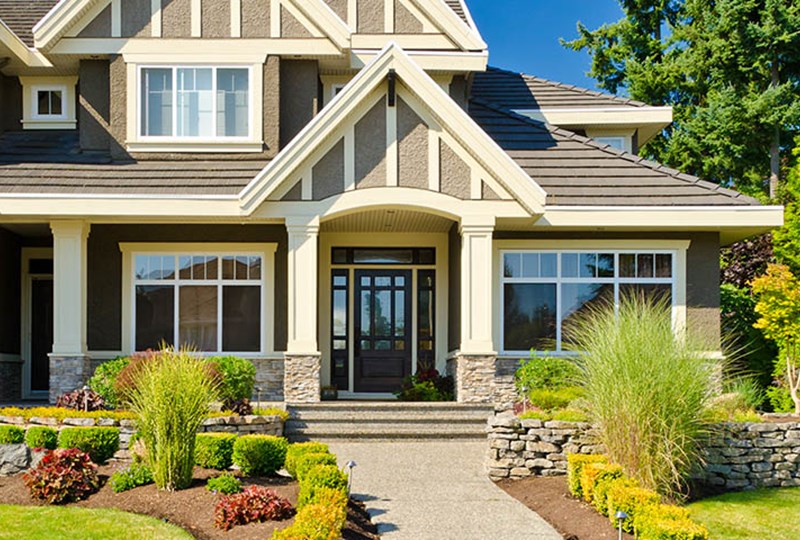
Key Insights
- It’s easy to get excited about modern or recently updated finishes and appliances, but you’ll want to ensure all plumbing, foundation and structures are solid.
- A thorough inspection provides a more accurate view of a home’s condition.
- The neighborhood and area are also important considerations.
It’s easy for prospective homebuyers visiting open houses to become enamored with homes touting recent cosmetic updates, such as new appliances or a fresh coat of paint. However, serious buyers should do a more thorough inspection of homes during showings so they can get the most accurate view of a home's condition. Here’s what to look for during a home showing or open house.
Open houses vs. showings
Wondering what the difference is between an open house and a showing? Generally, during an open house, the agent representing the home for sale holds it “open” for public tours. This provides an opportunity for visitors to check out the property and ask questions about it without making an appointment. Many potential buyers use open houses as an entry point into real estate, where they can see what’s on the market and get a sense of what they’re looking for in a home or neighborhood. Because it’s open to the public, there may be several potential buyers touring the property at the same time.
At a home showing, an agent representing the buyer makes an appointment to provide a private showing of the property. This is a time when potential buyers are likely to take a closer, more serious look at a home and ask their REALTOR® questions about the property. A serious buyer may visit the home several times before making an offer on the property.
Look for red flags
When you’re touring a house, you can sometimes spot red flags by paying attention to the condition of kitchen and bathroom sinks or by looking for signs of water damage. Take note of concerns during the more casual observations you do at open houses and save your more thorough inspection for a home showing with your REALTOR.
During a showing, don’t forget to examine the plumbing fixtures, basement and attic, gutters and foundation. Issues with any of these parts of the home should raise red flags. Even if you’re happy with what you find, it’s a good idea to have a home inspector do a more thorough examination later.
Turn on lights and faucets
If you’ve ever stayed at a rental and decried the shower for its lack of water pressure, you’ll want to ensure faucets and plumbing are up to your standards. You can test electrical switches and plumbing by flipping on light switches and turning on faucets while visiting homes for sale.
Pay attention to odors
The nose knows, so be sure to pay attention to how the home smells. Some sellers try to mask bad smells with essential oils or candles during an open house, but any foul odors that permeate a home for sale — for instance, pet activity, smoke or water damage — could indicate a larger issue with the residence. If you're suspicious about any odors, ask your REALTOR® to inquire about specific concerns, and plan another visit to see if the odor persists.
Ask for access
If sellers have a room or area closed off to open-house guests and you find yourself interested in the home, you’ll want to ensure you gain access to the areas in a subsequent showing. This might include an attic, basement space or even a locked closet or garden shed. You might also want to look under rugs or furniture. Sellers should always make all areas of their property accessible to potential buyers by securing valuables elsewhere.
Consider the time of day
You’ll likely be visiting an open house during daylight hours, so it’s important to consider what the natural lighting and activity are like at different times of day. If you’re serious about a home, don’t be afraid to schedule subsequent showings in the evening hours to get a sense of how busy the streets are when commuters return and people are more likely to be out and about.
Investigate the area
Don't forget to scope out the neighborhood. The local school system, attractions, restaurants and businesses should all play a role in helping you decide whether to make an offer on a home. Ask the listing agent or your REALTOR about area amenities, including parks, trails and other areas of interest.
Work with a professional
Your REALTOR can guide you on what to look for and how to spot a house with “good bones” or one that’s just “good on paper.” Whether you’re ready to get serious about your home search, or you still want to have a look around, we’re here to help. Reach out to Edina Realty any time to be connected with one of our experts.









 ©2026 Prosperity Home Mortgage LLC®. (877) 275-1762. 3060 Williams Drive, Suite 600, Fairfax, VA 22031. All first mortgage products are provided by Prosperity Home Mortgage, LLC®. Not all mortgage products may be available in all areas. Not all borrowers will qualify. NMLS ID #75164 (For licensing information go to: NMLS Consumer Access at
©2026 Prosperity Home Mortgage LLC®. (877) 275-1762. 3060 Williams Drive, Suite 600, Fairfax, VA 22031. All first mortgage products are provided by Prosperity Home Mortgage, LLC®. Not all mortgage products may be available in all areas. Not all borrowers will qualify. NMLS ID #75164 (For licensing information go to: NMLS Consumer Access at